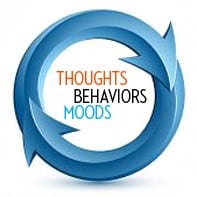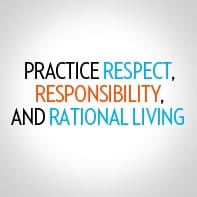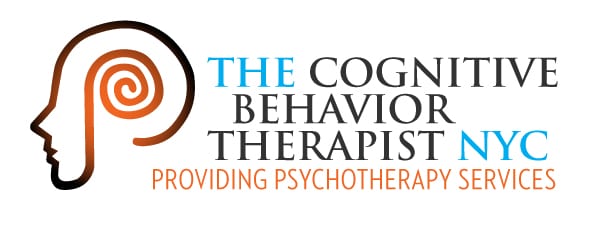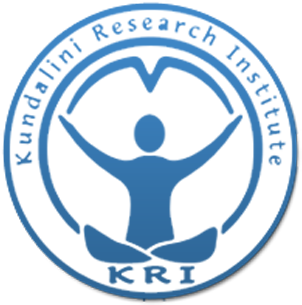
Can acknowledging our own resourcefulness, “mental toughness” and stick-to-itiveness be the fundamental difference between success and failure?
Self-efficacy relates to a person’s ability to have optimistic beliefs, but it’s more than just optimism, perceived self-efficacy explicitly refers to the belief in our ability to deal with challenging encounters. Thus it’s one’s belief that they have the capacity to organize & execute the necessary course of action to manage situations as they occur.
Self perceptions of self efficacy affect us in many ways: thought patterns, actions and physical and emotional states of arousal. People with low self efficacy experience anxiety, hopelessness and anger. They find it harder to bounce back after adversity. Those with high self efficacy experience fulfillment and feelings of calmness that accompany decisiveness and certainty. They are resilient to stress and are self motivating.
How does it affect our rate of success?
Self efficacy provides the foundation for human motivation, well being and personal accomplishments. The more we believe we can do, the more we invest and thus the greater likelihood we will accomplish our goals.
Empirical research has shown that belief in one’s ability to cope is a stronger predictor of success than objectively possessing the knowledge and operations skills necessary to get the task done. This is because how we perceive our abilities impacts how we choose to utilize those tools in such a significant way, that it’s more valuable to the outcome than the quality and quantity of the tools themselves.
In our daily lives we make decisions about not only what course of action to pursue but how long to continue the behaviors we have undertaken. Self efficacy affects how much effort and energy we invest in the decisions we make.
Therefore a positive outcome is not necessarily a matter of what is objectively true regarding knowledge or skills possessed at the time of the dilemma but rather a matter of attitude since self perception is more likely to influence behavior.
That’s why talented people can be plagued with self doubt while someone who is less talented will put themselves out there and get the task done. Along the way the less talented person may experience some setbacks but they generally just ignore or discount them and maintain their perseverance.
What to do to build self efficacy:
As humans we have self regulatory mechanisms that provide us with the potential for self directed changes in our behavior.
The manner and degree to which people self regulate their actions are based on the ACCURACY and CONSISTENCY of self observation. Ability to appropriately self -monitor and make judgments regarding one’s own choices need to be developed and sustained.
Start by being:
- Mindful of your own emotions- Ask yourself at the top of each hour what primary emotions you are feeling and how likely they are to influence your behavior.
- An Assumption Detective- Get in touch with your underlying attitudes and assumptions of individual decisions or hesitations (things you are avoiding) and investigate how truthful they are. Use simple tasks to help develop the skill. For example if you decide to take a cab versus the train, the assumption may be that you will arrive sooner. But is that necessarily true? Ask yourself what could have happened if you had done the opposite? Then apply to things you are avoiding: if you don’t ask your boss for a raise is it because the assumption is that he will definitely say “No”. If you are not certain, then investigate before you let assumptions rule your actions.
- Challenge your attributions: Attributions are the judgments we make about our own or the behaviors of others. Look for specific, situational causes to events rather than global, personalizations to explain things. This will give you a better blue print over where change in your behavior can occur.
- Focus on Intent Vs Outcome: Set Tangible & Measurable Behavior Goals vs Subjective/ Outcome goals: Self motivators set personal behavior goals that encourage them to work in self directed ways. This involves measuring success by objective means that focus on intent versus outcome. For example, setting a goal of eating 1500 calories a day versus losing 5lbs or “trying to stay on your diet”. This is especially important since the most influential source of one’s self efficacy is the interpreted results of one’s previous performance.
- Watch & Mimic an Expert Model: Through vicarious learning we can instill confidence that we are making the right decision simply because we have witnessed others be successful using similar strategies.
- Avoid too much negative feedback & Surround yourself with Positivity: Social persuasion through feedback from others, including verbal judgments, constructive criticism and praise has a significant impact on how we rate our efforts. And for the most part negative feedback can have a stronger impact than positive ones, therefore try to focus attention on strategies to utilize strengths and cope with weakness and avoid conversations or mental thoughts that involve berating yourself.
- Meditate & Breath: Learn to calm Body Sensations and Emotional States- People have a tendency to gauge the degree of confidence by their emotional state as they contemplate an action. Thus when we are anxious and hopeless we look to escape, convincing ourselves we should throw in the towel sooner, because they think ” Why bother it’s not going to work, so what’s the point?
But the point is, as the famous Roman poet Virgil one’s wrote: “We are who we think we are-”. And one thing is certain, if we give up we definitely won’t win!
To contact Dr Jayme about individual or group therapy or corporate consultation please email DrJayme@AsktheCBT.com or 212-631-1133. Dr Albin is in private practice in Manhattan, New York and has many clients she provides phone or email services to.

















U have some excellent stuff here. Definitely worth
bookmarking for revisiting. I m surprised at how much effort you make to make this a magnificent informative site.
U have some excellent stuff here. Definitely worth
bookmarking for revisiting. I m surprised at how much effort you make to make this a magnificent informative site.